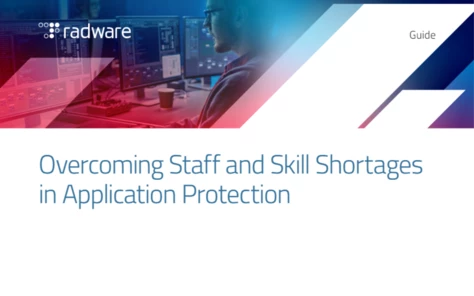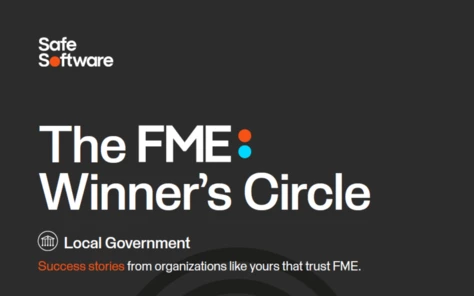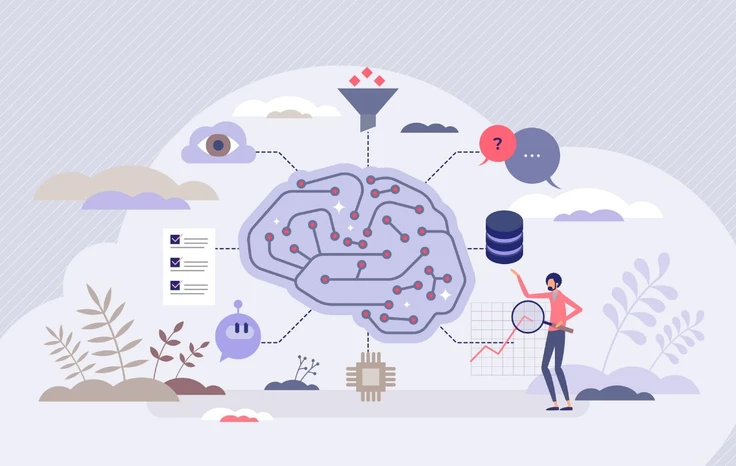Cisco Duo SMS Logs Exposed in Third-Party Data Breach
How to reimagine cloud data to unlock new value for the enterprise

This piece was contributed by Spencer Tuttle, VP EMEA at ThoughtSpot.
2020 has been the of a crescendo for extreme economic conditions and social and technological change. The result of which is organisations globally collecting more data than ever before across more areas of business to deliver better customer experiences, increased efficiency and productivity and ultimately, drive more revenue. With this has come a cloud-first strategy built to embrace the agility, speed and scale of cloud analytics. It is apparent that adopting this approach is a must for any enterprise to navigate the ever-changing market demands of a volatile and global economy.
The increased volume of data and required processing has, however, brought challenges. Businesses have become unable to utilise all of the insight generated because it is fractured across the organisation. Often, the questions someone poses has already been answered by someone else, but finding the right content at the right time proves to be a near-impossible task. Where once data silos were preventing rich and meaningful insights from shaping decisions, now insight silos created by individual users are preventing data-driven decisions from scaling across organisations - and the cloud is exacerbating this problem.
Data silos have shrunk but they need to disappear
When analysing data, the right answer to the right person at the right time is paramount to realising the true value of the whole exercise. In this modern era of industry, business decisions must be informed by data insight, but achieving this efficiently across the whole enterprise is not simple. While democratising data through self-service analytics removes departmental data silos and empowers the individual user to create their own insight through direct access to data, it creates many more, smaller insulated silos.
Using cloud data analysis to provide the correct people with access to all the insight generated can break down these new silos. Without this access, value is lost through time and unused business information losing relevance. This is a problem that the industry has been trying to solve for years. Visualisation helped move it forward but for true democratisation, we need to look to the consumer world for new paradigms to extract insights from data - search.
Creating new insights with search as the basis helps to provide access to those previously didn’t know the insights already existed. As such, accessibility and collaboration is key for utilising the insights from that is sprawled across the organisation and ultimately, ensuring that the business thrives rather than falling behind due to missing critical insight.
Technology isn't a silver bullet, however. Processes, talent and culture need to evolve in parallel to break both data silos and prevent insight silos from emerging. Many might believe that companies face a skills gap challenge but miss that employees largely aren’t equipped with the correct technology either. When empowered with AI-enabled and automated analytics, workers begin to see new-found value in their data across with easy access to everything the cloud offers. They don’t need extensive training - they need a consumer-grade experience driven by intelligent practices that support, not upend the way they work.
This idea was supported by a recent study by The Economist. This found that while there is a strong degree of confidence in the benefits of AI, the reality is that the technology is not yet largely in use: More than half of respondents say AI is not incorporated into their business’s processes and offerings, and only 15% say that the technology is used extensively across the organisation.
Collaboration in effect
Without this approach, realising the full value of data will remain elusive. Business leaders need to begin by making data and its AI-driven insights accessible to all. Data scientists and analysts agree with this as shown in a study conducted in partnership with TDWI. 44% of survey respondents cited the need to democratise analytics as the top change necessary to become more productive, efficient, and strategic in their roles. To do this, businesses need to implement analytics solutions which are simple to use and collaborative in approach. By completely redesigning the end to end experience for data in the cloud, from onboarding, monitoring and initial insight creation to AI-driven deep exploration, the outdated practices that have been holding businesses back in their analytics processes can be replaced.
This creates an impactful snowball effect. As more employees buy into the vision of successful cloud data analytics the volume of insights created increases and in turn, so does the amount of insights available for the community to operationalise. This is an idea built on the groundwork of encouraging a data culture across the enterprise: Of encouraging a culture of analytical thinking and problem solving. Shifting employees’ mindsets to be data-first with critical decision making centred in insight. In comparison with the old existing ad hoc approaches, questions aren’t repeated, insights are no longer lost or forgotten and in the end, the business performance is increased.
With the changes seen in the last 12 months, there is no going back to traditional analysis structures. We are moving into a new normal, where insights reign supreme. Organisations that transform and make insights core to their DNA, at every level, will thrive. Those that don't will fall behind. Their data teams will play a huge role in this transformation and the benefits of providing the whole business with access to cloud data undeniable. Investing in a cloud-first approach that makes it possible for users to not only create their own insights but surface the most relevant content others have already created instantly. My advice for business and technology leaders: you need to think beyond simply bringing in new technology to truly thrive in this new world. Ask yourself the hard questions. Do we have a plan to upskill and reskill our teams? How are we holding ourselves accountable? And what cultural changes do we need to make to realize true change?
In doing so, organisations can begin to tap their collective intelligence combined with AI to answer questions they haven’t even thought of asking yet. These streamlined operations will allow for user demand to be met for the first time since cloud adoption and companies will finally become truly data-driven.
























